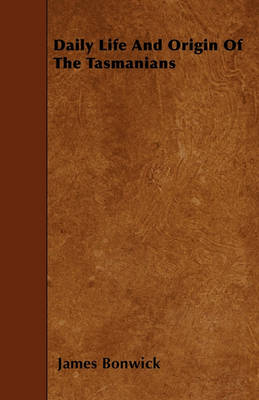Cambridge Library Collection - History of Oceania
2 total works
James Bonwick (1817-1906) arrived in Tasmania, then Van Diemen's Land, in 1841, beginning an unstable and itinerant career as school-master, writer, and archivist. A zealous non-conformist and mystic, who was briefly in contact with Madame Blavatsky, Bonwick became interested in the plight of the Tasmanian aborigines after a visit to Flinders Island, to which the last of the nearly extinct population had been removed. Published in 1870, by which time Bonwick had become a fellow of the Royal Geographical Society, this book is a sympathetic anthropological study of indigenous Tasmanian culture and society, based on colonial records, interviews with early settlers and Bonwick's own experiences. The companion volume to The Last of the Tasmanians, which discussed the reasons for the extinction and was cited by Darwin in The Descent of Man, it provides important source material, as well as insight into the morally difficult subject of nineteenth-century anthropology.
In this 1902 work, teacher, historian and archivist James Bonwick (1817-1906) recalls a long life's contribution to the fields of education and historical writing. More than sixty publications can be attributed to Bonwick, who was elected a fellow of the Royal Geographical Society in 1865. He traces his life from boyhood to the many years he spent in Australia, establishing, managing and inspecting schools. Bonwick stressed the need for observation and experimentation by the pupil rather than rote learning. He was also involved in the temperance movement, and was a sympathetic champion of the near-extinct Tasmanian aborigines. Upon returning to England in the early 1880s, Bonwick immersed himself in transcribing Australian source material, archived in London, that chronicled the British settlement in Australia. Many of his transcripts were subsequently used as the basis of works on the early history of Australia both by Bonwick himself and by others.

